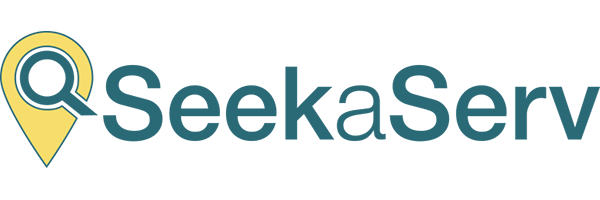
The Ultimate Guide
Embarking on the entrepreneurial journey is an exhilarating experience, filled with hopes, dreams, and the ambition to carve out a successful path in the business world. Whether you’re in the UK or any part of the globe, the process of starting a business requires meticulous planning, dedication, and a clear understanding of what lies ahead. This guide aims to shed light on the essential steps, from identifying your business idea to understanding the costs involved, exploring funding options, and navigating the digital landscape to start a business online. With this comprehensive guide, you’ll be equipped with the knowledge to transform your vision into a thriving reality.
How to Start a Business
Embarking on the entrepreneurial journey begins with a fundamental step: understanding how to start a business. This process is not merely about having a idea; it involves detailed planning, understanding the market, and preparing yourself mentally and financially for the challenges ahead. The initial phase requires you to conduct thorough research, identify your target market, and develop a robust business plan. This plan will serve as your road map, outlining your business objectives, strategies for achieving them, and the resources required.
Identifying your niche is crucial. This involves analysing market trends, understanding customer needs, and identifying gaps in the market that your business can fill with the skills you already have. It’s about finding the intersection between what you’re passionate about and what can be profitable. Once you’ve honed in on your idea, the next step is to make it legal. This means choosing a business structure, registering your business, obtaining the necessary licenses and permits, and setting up your financial systems.
Building a support network is also essential. This could include mentors, advisors, and others within communities who have walked the path before you. They can provide invaluable advice, feedback, and encouragement. Additionally, leveraging digital tools and social media can help you build your brand, connect with your audience, and start generating interest in your business even before launch.
Identifying Your Business Idea
The cornerstone of any successful business is a solid, marketable idea. Identifying this requires introspection and market research. Start by asking yourself what skills, hobbies, or passions you have that can solve a problem or meet a need. This self-assessment will guide you towards areas where you can naturally excel and sustain your interest over time.
Market research then plays a crucial role. It involves analysing your identified interest areas to see if there’s a demand for the solutions you envisage. Tools like surveys, focus groups, and market analysis reports can provide insights into consumer behaviour, competition, and potential market gaps. This step is critical in validating your idea and ensuring it has the potential to turn into a profitable business.
Once you’ve identified and validated your business idea, the next step is to test it in the real world. This could involve creating a profile on a market place platform of your service and getting feedback from potential customers. This iterative process helps refine your offering and ensures it truly meets the needs of your target market.
Essential Resources for Starting a Business
Embarking on your business journey requires more than just a great idea; it necessitates a plethora of resources. Knowledge is your foremost asset. Educating yourself about the industry, market trends, and the essentials of business management is crucial. This can be achieved through online courses, workshops, and reading up on successful entrepreneurs’ biographies.
Financial resources are equally vital. Starting a business involves various costs, from invoicing software and client management software to marketing and tools of the trade. Having a clear understanding of these expenses and planning accordingly is essential. Additionally, leveraging a platform that offers either free or low-cost solutions digital tools can significantly reduce your initial investment. These tools can assist with everything from project management and accounting to marketing and customer communication.
Human resources should not be overlooked. No entrepreneur is an island, and building a strong support network of like minded individuals can make a significant difference. This includes finding free webinars , talking to other experts in their field, and networking with other business owners. Each of these human connections can offer unique insights, support, and opportunities for collaboration.
Costs of Starting a Business
Understanding the financial commitment required is critical when embarking on your entrepreneurial journey. The costs of starting a business can vary widely depending on the industry, scale, and location. However, some common expenses apply to most startups. These include registering your business, buying a domain, building a website, inventory costs, marketing and branding expenses, and the technology or equipment needed to operate.
Planning for operational costs is also essential. These are the ongoing expenses your business will incur, such as a multitude of monthly subscriptions for different client software packages and licences, and insurance. Having a clear budget and financial forecast can help you manage these costs effectively and ensure your business remains viable in the long term. Alternatively, as previously mentioned, look for a cheaper fully inclusive solution that offers business starter pack.
Many entrepreneurs underestimate the financial resources required to launch and sustain their business. It’s crucial to have a buffer or contingency plan to cover unexpected expenses. This might involve setting aside personal savings, securing a line of credit, or being prepared to pivot your business model if necessary.
How to Start a Business with No Money
Starting a business with minimal capital is challenging, but not impossible. The key is to leverage your skills, knowledge, and resources creatively. Begin by offering services instead of products. Services typically require less upfront investment and can generate income more quickly. This can include freelancing, consulting, or other skills-based work.
Utilising the power of the internet is another effective strategy. Starting a business online reduces the need for physical premises, lowering your startup costs significantly. Platforms like SeekaServ which offer business starter parks, social media, online marketplaces, and e-commerce websites offer avenues to reach customers without heavy investment in marketing and distribution. This also can offer a solution of a hop-in, hop-out solution, keeping your costs to a minimum.
Bartering your services or partnering with other businesses can also help you conserve cash. This could involve exchanging your skills for the services you need, such as marketing or web design. Networking and building relationships within your industry can open up opportunities for collaboration and mutual support.
Funding Options for Starting a Business
Securing the necessary capital to start and grow your business is a critical step. Various funding options are available, each with its advantages and disadvantages. Self-funding or bootstrapping involves using your savings or assets to finance your business. This option gives you full control but also exposes you to greater personal financial risk.
Seeking loans from friends and family is another common approach. It can provide the necessary funds without the need for collateral or high-interest rates. However, it’s essential to approach these arrangements professionally, with clear terms and expectations to avoid personal conflicts.
External funding sources, such as bank loans, government grants, or business capital, can offer significant injections. Each of these options requires thorough preparation and a compelling business case. Grants are often competitive but don’t need to be repaid, making them an attractive option. Loans and venture capital can provide larger sums but typically come with strings attached, such as interest payments or equity stakes in your business.
We recommend trying to keep your start-up costs to a minimum, having the burden of repaying a loan or investment could put extra strain and pressure on you and your business. Remember, your going into business to improve your lifestyle, not make it harder.
Starting a Business in the UK
Navigating the business landscape in the UK requires a specific understanding of the legal, financial, and regulatory environment. The first step is choosing the right business structure, such as a sole trader, partnership, or limited company. Each has its implications for tax, liability, and reporting requirements.
Registering your business with Companies House is a straightforward process and a legal requirement for limited companies. This provides your business with a legal identity and allows you to start trading. Additionally, understanding the UK’s tax system is crucial. Registering for VAT, corporation tax, or self-assessment, depending on your business structure, is essential for compliance, you may want to engage with an expert in this field and local accountants can offer this support.
The UK government offers various support services for startups, including grants, loans, and mentoring programmes. These can provide valuable financial and advisory support to help you establish and grow your business. Leveraging these resources can significantly enhance your chances of success in the competitive UK market.
Starting a Small Business at Home in the UK
Starting a small business from home offers a flexible, cost-effective way to launch your entrepreneurial journey in the UK. This approach reduces overheads, such as rent and commuting costs, allowing you to channel more resources into growing your business. However, it’s essential to ensure your home is suitable for your business activities and complies with local zoning laws. If you are considering offer a virtual service like online tutoring or design services, then the above would not matter as clients would not need to attend your property.
Creating a dedicated workspace is crucial for productivity and maintaining a work-life balance. This space should be conducive to work, free from distractions, and equipped with the necessary tools and technology. Additionally, considering your neighbours and ensuring your business activities do not cause disruption is important.
Obtaining the necessary permits and insurance is also essential, even when operating from home. This could include professional indemnity insurance or public liability insurance, depending on your business type. Ensuring you’re fully covered provides peace of mind and protects your service business in the long term.
How to Start a Business Online
The digital age offers unprecedented opportunities to start and grow a business online. This approach provides access to a global market, reduced overheads, and the flexibility to operate 24/7. The first step is to create a professional, user-friendly website. This serves as your digital storefront and is crucial for making a good first impression.
Choosing the right e-commerce platform is essential for managing your online sales effectively. Options like Shopify, WooCommerce, or SeekaServ offer various features and integrations to suit different business needs. Additionally, digital marketing strategies, including social media marketing, email marketing, and search engine optimization (SEO), are crucial for attracting and retaining new business.
Payment processing is another key consideration. Offering a range of secure, convenient payment options can improve the customer experience and boost sales. This might involve integrating services like PayPal, Stripe, or direct bank transfers into your website, some of the mention e-commerce platforms already offer this service.
Benefits of Starting a Business
Embarking on your entrepreneurial journey offers numerous benefits, both personal and professional. It provides the freedom to pursue your passions, control your destiny, and potentially reap significant financial rewards. Additionally, it offers the opportunity to create jobs, contribute to the economy, and make a positive impact on your community.
You maybe are just looking to earn some extra money to bluster your income, this is know as a side hustle or it maybe to break free from the constraints of a traditional 9-5 employment. Starting a new business can be one of the most rewarding en-devour you will ever achieve and you may never look back.
Starting a business also challenges you to grow and develop new skills. From leadership and decision-making to marketing and financial management, the experience of building a business from the ground up is incredibly enriching. It pushes you out of your comfort zone and fosters a mindset of continuous learning and improvement.
Moreover, the satisfaction of building something from scratch, overcoming challenges, and seeing your vision come to life is unparalleled. This sense of accomplishment and the ability to bring positive change through your products or services can provide deep personal fulfilment.
Conclusion
Starting a business is a journey filled with challenges, costs, learning, and opportunities. From identifying your business idea to navigating the complexities of the digital and financial landscapes, each step requires careful planning and dedication. By leveraging the resources and strategies outlined in this guide, you’ll be well-equipped to embark on your entrepreneurial journey and unlock success.
For those seeking extra income opportunities, SeekaServ is a valuable resource. Whether you’re looking for flexible work schedules, setting your own pay rates, or opportunities to earn more money, SeekaServ has everything you need to succeed. With its user-friendly platform and comprehensive service listings, SeekaServ makes extra income a thing of ease. So why wait?
Sign up for SeekaServ today and take the first step towards finding your ideal income stream.





